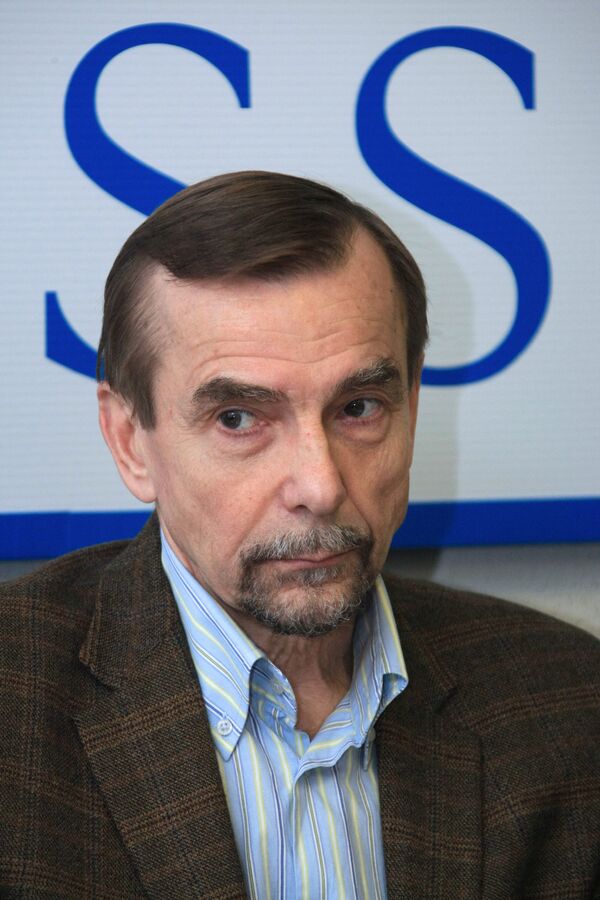MOSCOW, May 8 (Alexey Eremenko, RIA Novosti) – The Kremlin is trying to force the majority of independent nongovernmental organizations (NGOs) in Russia to shut down their operations, the leaders of two prominent Russian human rights groups said on Wednesday.
“Independent [nongovernmental] organizations will simply cease to exist,” Lev Ponomaryov, the head of the For Human Rights group, said at a news conference in Moscow.
“There was a decision made up high…to close down certain organizations that irritate our leadership,” agreed Lyudmila Alexeyeva, the veteran head of the Moscow Helsinki Group.
Under a controversial law approved by President Vladimir Putin last year, NGOs funded from abroad and engaged in “political” activities are required to register as “foreign agents,” or face fines of up to 500,000 rubles ($16,000) for NGOs and up to 300,000 rubles ($10,000) for NGO directors.
About 300 NGOs nationwide, according to rights activists’ figures, have been subjected since March to exhaustive checks by tax officials, Justice Ministry representatives and prosecutors. Nineteen human rights and environmental organizations have so far been classified as “foreign agents," a term which critics say is synonmous with "spy."
“We’re enemies in the eyes of the president. There was an order to destroy us,” Ponomaryov said.
Putin denied in April that the “foreign agents” law is aimed at banning the operations of NGOs.
But the ongoing crackdown would result in closure of numerous high-profile NGOs, both Ponomaryov and Alexeyeva said. They added that the “foreign agents” law infringed on the freedom of association and was unconstitutional.
The targeted NGOs will attempt to register under new names and, failing that, will continue to work unregistered and without a budget, as in the late Soviet period, Alexeyeva said.
The duo, along with other rights champions, discussed the crackdown with US Secretary of State John Kerry in Moscow before the press conference Tuesday.
But they said Kerry did not go beyond “well-rounded phrases” and pledged no explicit support to Russian civil society activists.
The United States passed in December the Magnitsky Act, blacklisting Russian officials implicated in rights abuse, which soured relations with Russia. But Kerry glossed over the differences when commenting on his meetings with Russian President Vladimir Putin and Foreign Minister Sergei Lavrov in Moscow on Monday, and mostly avoided the matter of human rights.
“This is a domestic matter, we understand that,” Ponomaryov said.
One high-profile NGO, the Golos independent elections watchdog, was fined 300,000 rubles ($10,000) in April for failing to register as a “foreign agent.” The watchdog’s head, Liliya Shibanova, was also fined 100,000 rubles ($3,000).
Golos has challenged the Kremlin on a number of occasions, notably during the disputed 2011 parliamentary elections, when alleged vote fraud in favor of Putin’s United Russia party sparked mass protests.
The fines were slammed by Human Rights Watch and Amnesty International, who called the rulings "an alarming indicator for the future of civil society in Russia" in a joint statement.
Putin defended the law in his live Q&A session last month.
"Let them say where they got the money, how much money, and how they spent it! What's wrong with that?" he said.
Putin claimed earlier this month that Russian NGOs had received almost $1 billion in foreign funding in 2013, but the Kremlin has so far declined to give details.
Russia’s General Prosecutor’s Office denied last month allegations by NGOS of a widespread check of their activities, saying just 0.5 percent of registered NGOs had been inspected in Moscow and less than 1 percent in St. Petersburg.




